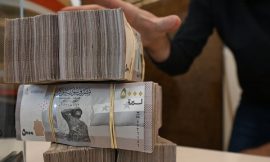While the focus of attention on the latest tariff announcement from US President Donald Trump has been on car-manufacturing, his unambiguous confirmation of import taxes on pharmaceuticals are causing most concern for Ireland.
Out of €72bn of goods exported to the US, a massive €58bn is pharmaceuticals.
Donald Trump has previously said the tariffs on drugs imported by the US will be “in the neighbourhood of 25%”.
As politicians and businesses in Ireland nervously await full details on April 2, we know more about the potential impact of the trade war following research from the ESRI, Department of Finance and Central Bank.
President Trump’s issue is that huge volumes of drugs are made in Ireland by US companies and sold in the States to consumers there.
The profits are taxed in Ireland at 15%, a significantly lower rate of corporation tax compared to 21% in the US.
On top of that, some multinationals here use contract manufacturing. This is where an Irish subsidiary commissions a manufacturer in another country to make drugs and then ships them to the US where they are sold to consumers.
In this situation the pharmaceutical products are not made in Ireland, but profits are taxed at the lower Irish rate and the State’s coffers benefit from manufacturing which didn’t happen here.
US Commerce Secretary Howard Lutnick has described Ireland as a “tax scam” and is critical of the enormous surplus run by Ireland, fuelled by US multinationals based here.
So, what will the effect of tariffs be on Ireland?
The most likely immediate impact of blanket 25% tariffs will be on the €15bn of corporation tax receipts – these have been described as “vulnerable” by the Central Bank.
The ESRI said: “Given the central role these revenues play in the public finances, any serious correction would have significant implications for the public finances.”
During the financial crash, Ireland experienced the full consequences of a severe blow to the revenues collected by the State which resulted in higher taxes and deep spending cuts. Economic and social scars were left in their wake.
It is not clear how harmful the effects of Trump’s tariffs will be, but it is unsurprising that Minister for Finance Paschal Donohoe has been engaged in a public softening up exercise over the past week.
He has warned that between 50,000 and 80,000 jobs which would have been created or kept in the economy may not happen.
He indicated that some spending promises and tax cuts may not proceed if there are pronounced effects from the trade war.
The ESRI has warned of more significant effects in future years on economic growth, investment, employment, consumer prices, inflation and possibly interest rates.
That is a long list of negative consequences.




